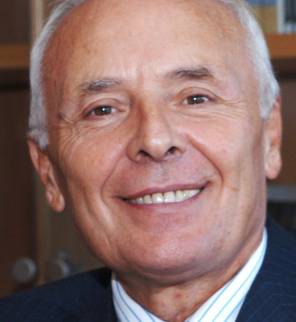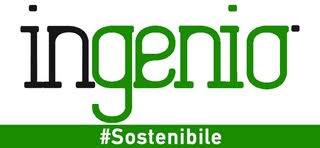ECOINNOVAZIONE E COMPETITIVITÀ DELLE AREE INDUSTRIALI: Le prospettive per uscire dalla crisi
è nato MEID, Mediterranean Eco-Industrial Development, un Progetto europeo che ha coinvolto 10 partner in cinque Paesi europei, tra cui l’ENEA per l’Italia
ECOINNOVAZIONE E COMPETITIVITÀ DELLE AREE INDUSTRIALI PER I PAESI DEL MEDITERRANEO
Le prospettive di sviluppo economico delle aree industriali nei Paesi del Mediterraneo in un’ottica di sostenibilità e di salvaguardia dell’ambiente richiedono interventi di eco-innovazione per riqualificare i sistemi produttivi. Queste azioni indispensabili per la crescita della competitività sono alla base della Green Economy, uno dei settori che l’Unione europea giudica a più alto potenziale di crescita, con 5 milioni di nuovi posti di lavoro in Europa entro il 2020 nei soli ambiti dell’efficienza energetica e delle energie rinnovabili.
Con l’obiettivo di mettere a punto un modello di pianificazione e gestione delle aree industriali nei Paesi del Mediterraneo, che riduca il loro impatto ambientale e ne incentivi la crescita competitiva, è nato MEID, Mediterranean Eco-Industrial Development, un Progetto europeo che ha coinvolto 10 partner in cinque Paesi europei, tra cui l’ENEA per l’Italia.
Nel corso di un convegno che si è tenuto oggi 31 maggio 2013 all’ENEA sono state illustrate alcune esperienze concrete del Progetto MEID in aree industriali italiane come Ragusa e Padova.
Giovanni Lelli, Commissario dell’ENEA, ha dichiarato: “Nel nostro Paese, caratterizzato da una forte vocazione manifatturiera, si è stabilita una forte interazione tra le aree industriali e il tessuto urbano, legata all’occupazione e allo sviluppo economico del territorio. La crisi economica ha accentuato l’esigenza di ottimizzare le risorse utilizzate per le attività produttive, prima fra tutte l’energia: in questo ambito la Green Economy offre una prospettiva di rinnovamento per quelle aree industriali che hanno bisogno di interventi di riqualificazione edilizia, ma anche di una riprogettazione di prodotti e servizi necessaria per competere sui mercati internazionali. La sostenibilità ambientale è alla base di questi interventi che permettono di minimizzare l’impatto di un impianto industriale sul territorio circostante e, allo stesso tempo, comportano un miglioramento della vivibilità urbana, grazie al rinnovamento delle infrastrutture per il trasporto pubblico e alla realizzazione di innovative reti di pubblica utilità.”

M.E.I.D. – Mediterranean Eco Industrial development is an initiative co-financed by the Programme Med and the European Regional Development Fund. MEID aims at realizing the Mediterranean Eco Industrial Development model facilitating and enabling planning, building and governing sustainable Industrial Areas (IAs).
The MEID project goals to enhance capacities and decision tools of Competent Authorities to integrate environmental friendly solutions into the Regional and Interregional Development Strategies related to Industrial Policy. The European and Mediterranean SMEs will be the first beneficiaries of MEID, in terms of fostering eco-innovation, competitiveness and transnational cooperation.
PROJECT COMPONENTS
The project activities are organised in a set of components:
- Component 1 – Communication: Communication and dissemination of project activites and results among a wide variety of audience (public autorites, scientific community, industials, SMEs, etc) and throught European networks. Project consortium will implement a number of international and national events.
- Component 2 – Project Management: implementatin of project management activites.
- Component 3 – SWOT analysis of Industrial Areas (IAs): starting from the exploitation of previous experiences, project partner will present their procedures and construction rules for new Industrial Areas, putting in evidence the environmental, economical criticisms and strengths. Project partner will share their SWOT results to identify the traditional model weakness and to propose innovative technology, process and materials. The “opportunities”at European level, available Best Available Technologies (BAT) related to buildings will be analysed. A set f internal round tables on swot will be organized.
- Component 4 – MEID model Definition: MEID Model will be developed as a decision support system for local authorities to define the IAs location, the area size, the general plan, taking into account mobility, resources, energy and waste management. It will include rules definition for industrial building in order to cover the lack of focus on sustainability in the industrial buildings which present specific characteristics from residential buildings. Two transnational technical meetings will be organized involving external experts.
- Component 5 – Validation and Pilot test: The model test will provide indications for improving sustainable standards of IAs and validate the rules to follow in the planning phase. SMEs of sustainable construction, energy, recycling sectors will be involved. Competent Authorities will provide recommendation to integrate into the regional programme indications to incentive the introduction of proposed rules. The foreseen pilot areas are: Apulia (Italy), Ragusa (Italy) and Valencia (Spain). Component activites include training courses, meetings for pilot actions and transnational workshops for SMEs.
http://www.medmeid.eu/
